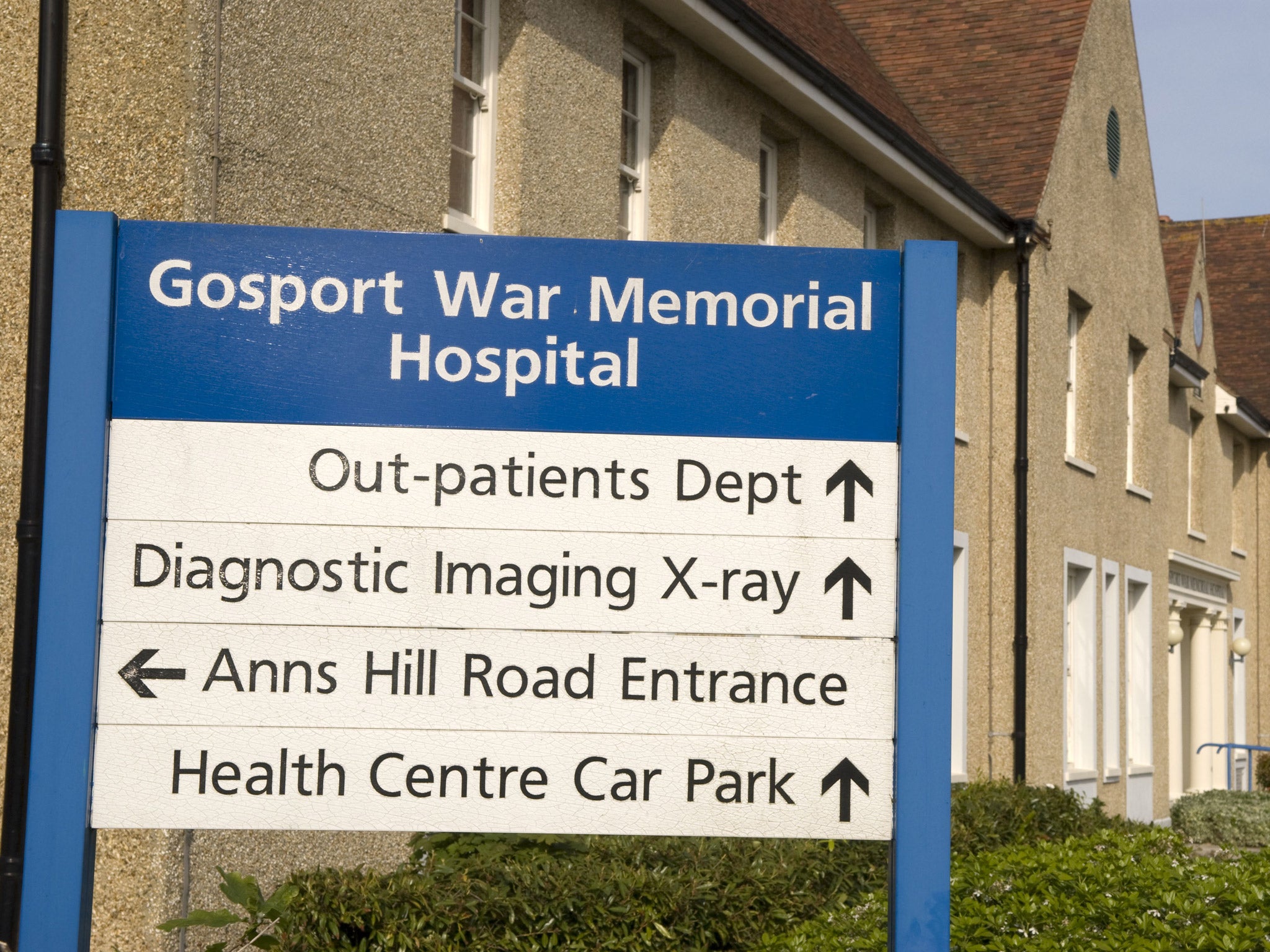Exclusive: Government launches inquiry over 100 suspicious deaths at a Hampshire hospital
Concerns were first raised about the use of opiates among elderly patients at Gosport by nurses in 1991

Your support helps us to tell the story
From reproductive rights to climate change to Big Tech, The Independent is on the ground when the story is developing. Whether it's investigating the financials of Elon Musk's pro-Trump PAC or producing our latest documentary, 'The A Word', which shines a light on the American women fighting for reproductive rights, we know how important it is to parse out the facts from the messaging.
At such a critical moment in US history, we need reporters on the ground. Your donation allows us to keep sending journalists to speak to both sides of the story.
The Independent is trusted by Americans across the entire political spectrum. And unlike many other quality news outlets, we choose not to lock Americans out of our reporting and analysis with paywalls. We believe quality journalism should be available to everyone, paid for by those who can afford it.
Your support makes all the difference.A Hillsborough-style inquiry to investigate up to 100 suspicious deaths at a Hampshire hospital during the 1990s is set to be announced by the Government today.
Led by the Right Rev James Jones, the former Bishop of Liverpool, the inquiry will examine cases at Gosport War Memorial Hospital dating back to 1991, including those of up to a dozen elderly patients who were given powerful “life-shortening” painkillers.
The Independent understands that the Health minister Norman Lamb, who campaigned for a Shipman-style public inquiry into the Gosport deaths, is directing the bishop to establish a wide ranging inquiry following a damning “deaths audit” of the hospital.
The report, which was chaired by Professor Richard Baker – a patient safety expert from the University of Leicester – was published in 2012. It found morphine and other powerful sedatives were routinely prescribed to elderly patients in Gosport between 1988 and 2000, even if they were not in pain.
Professor Baker’s team found a “remarkably high” proportion of patients were given opiate injections prior to death; the practice of using these powerful drugs became “routine” and “almost certainly shortened the lives of some patients”.
Their report added that some of these patients might have survived their illness.
Concerns were first raised about the use of opiates among elderly patients at Gosport by nurses in 1991, but the practice continued for another decade, despite complaints from families, three police investigations, 11 inquests and a professional misconduct hearing.
The Baker report had been suppressed by the Department of Health for nearly 10 years on the grounds that it might interfere with these proceedings, but the path is now believed to be clear for a formal inquiry to be established. Speaking to The Independent on Sunday last year, Norman Lamb said: “I am deeply concerned by the findings of the Baker report.”
He added: “I am also conscious that a lot of documents remain unpublished. I want openness so we can establish all of the facts.”
It is thought the new inquiry will be non-statutory, though it will have the power to call witnesses.
Subscribe to Independent Premium to bookmark this article
Want to bookmark your favourite articles and stories to read or reference later? Start your Independent Premium subscription today.
Join our commenting forum
Join thought-provoking conversations, follow other Independent readers and see their replies
Comments